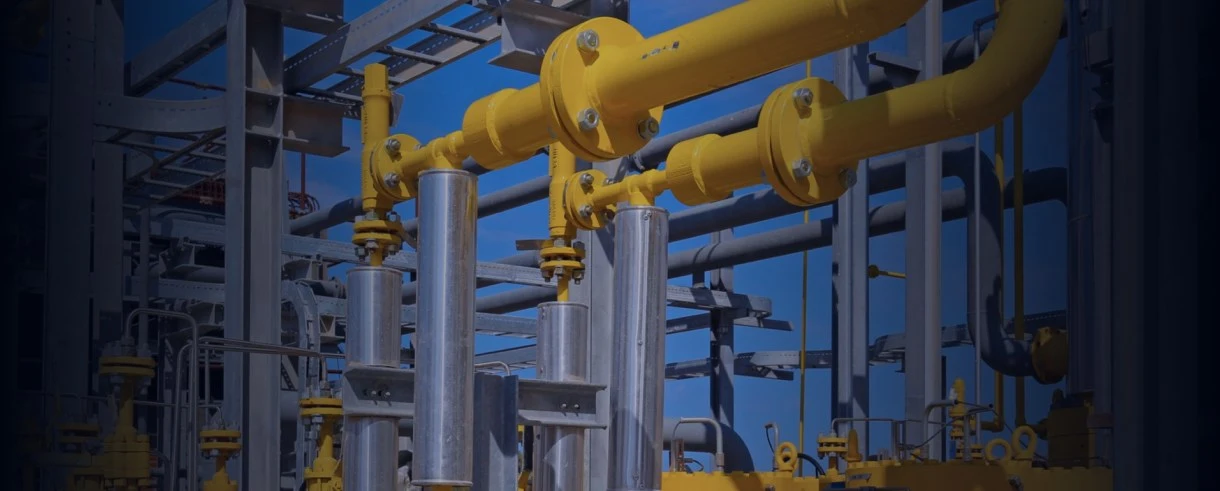The energy and chemical industries are in a constant state of change. Companies face the dual challenge of reducing costs while accelerating project timelines, all without compromising safety or quality. This is where modular engineering and modular plant design are stepping in as game changers. By leveraging prefabricated, skid-mounted, and modularized solutions, process plants can achieve remarkable improvements in cost efficiency, construction speed, and operational flexibility.
At Ingenero, with decades of expertise in process design and engineering, we’ve seen firsthand how modular process systems are reshaping the way facilities are conceived, built, and operated.
What Is Modular Engineering for Process Plants?
Modular engineering is the practice of designing and constructing plants or process systems in preassembled sections, known as modules. Instead of building an entire facility piece by piece on-site, these modules are fabricated in controlled environments and then transported for installation.
In a typical modular process design, each module integrates specific components,such as pumps, piping, instrumentation, and controls, into a compact, functional unit. These can be assembled into larger systems, such as skid-mounted process plants, modular chemical plants, or even modular refinery design solutions.
This approach streamlines construction, reduces risks, and ensures higher quality because modules are thoroughly tested before they are ever shipped from the fabrication facility.
Why Modular Plant Design Is Transforming the Energy and Chemical Industries
The shift toward modular plant design is not just a trend, it’s a response to pressing industry demands. Energy companies, petrochemical producers, and refineries all face rising capital costs, complex regulatory environments, and the constant need to stay competitive.
Traditional stick-built construction often struggles with delays, labor shortages, and site-specific challenges. By contrast, modular solutions:
- Reduce project risk by moving most of the work off-site.
- Shorten construction schedules by allowing parallel fabrication and site preparation.
- Enable scalability and repeatability, especially important for multi-plant rollouts.
This makes modular refinery design and modular chemical plants especially attractive for organizations seeking faster returns on investment and long-term adaptability.
Suggested Read: Strategies to Enhance Engineering Productivity and Efficiency
Key Advantages of Modular Engineering
- Cost Savings in Modular Plant Design
One of the most compelling benefits of modular plant design is its impact on project economics. By fabricating modules in specialized facilities, companies reduce on-site labor requirements and minimize costly delays caused by weather or logistics.
Prefabrication also reduces material waste and enables tighter control of quality, thereby lowering rework expenses. For investors and operators, these savings translate into lower capital expenditure and improved project predictability.
- Faster Time to Market
In industries such as oil, gas, and chemicals, speed can be a crucial competitive advantage. Modular process systems enable the dramatic shortening of timelines.
Since modules are fabricated in parallel with site preparation, overall schedules are compressed. Once the site is ready, modules are shipped and installed quickly, reducing the gap between project planning and commercial operations. For companies aiming to capture market opportunities or respond to demand spikes, this accelerated timeline is invaluable.
- Enhanced Flexibility and Scalability
Today’s process industries need plants that can adapt to fluctuating market conditions and new technologies. With a modular skid design, facilities can be scaled up or down with relative ease.
For example, a skid-mounted process plant can be deployed in remote or space-constrained locations, then expanded later as demand grows. Similarly, modular chemical plants allow operators to test new processes at smaller scales before committing to full-scale deployment.
This scalability is particularly valuable for sectors exploring new opportunities in energy transition, such as carbon capture, hydrogen, or advanced biofuels.
- Safety and Sustainability Benefits
Safety and environmental performance are non-negotiable in process industries. Modular engineering enhances both by ensuring that construction happens in controlled environments, reducing worker exposure to hazardous site conditions.
Modules are tested extensively before delivery, minimizing commissioning risks. In addition, modular process design helps reduce environmental impact by limiting site disturbance, lowering transportation needs, and cutting overall emissions during construction.
Modular Process Design in Practice: Industry Use Cases
The versatility of modular solutions has led to widespread adoption across industries:
- Oil and Gas: Modular refinery design allows companies to expand refining capacity incrementally, without major disruptions to existing operations. Advanced skid-mounted process plants can be deployed for gas treatment, separation, or recovery systems.
- Petrochemicals: Modular chemical plants streamline the production of specialty chemicals, fuel additives, and intermediates, supporting faster commercialization of new products.
- Power and Utilities: From water treatment to distributed energy, modular process systems are helping operators deploy reliable and efficient solutions in record time.
- Sustainability Projects: Carbon capture, renewable fuels, and solvent recovery processes benefit from modular skid design, which ensures rapid deployment and easy integration into existing facilities.
Ingenero has successfully applied modular engineering in multiple sectors, ranging from solvent recovery units to debottlenecking solutions, helping clients achieve production targets while reducing risks and costs.
Choosing the Right Modular Engineering Partner
The success of a modular plant design project depends heavily on the expertise of the engineering partner. A capable partner must combine deep process knowledge with advanced design tools and project execution experience.
Ingenero, with its proven track record and access to more than 90 state-of-the-art software applications, provides end-to-end support for modular process design. From conceptual design and feasibility studies to detailed engineering, fabrication support, and commissioning, Ingenero ensures that every module is optimized for efficiency, safety, and long-term performance.
By integrating services such as simulation, modeling, debottlenecking, and process scale-up, Ingenero brings unmatched value to clients looking to embrace the modular approach.
Suggested Read: How Precision Engineering Transforms Modern Manufacturing
Conclusion: Unlocking the Future with Modular Engineering
Modular engineering is more than an innovation, it is a practical solution to the challenges facing modern process industries. With its promise of cost savings, accelerated schedules, operational flexibility, and sustainability, modularization is redefining how plants are designed, built, and operated.
As industries move toward cleaner energy, advanced chemicals, and higher efficiency, modular plant design will play an even bigger role in ensuring competitiveness. Whether it’s modular chemical plants, modular refinery design, or skid-mounted process plants, the future belongs to facilities that can adapt quickly and operate efficiently.
By partnering with experienced leaders like Ingenero, organizations can confidently embrace the advantages of modular process systems and unlock new levels of performance, safety, and profitability.



